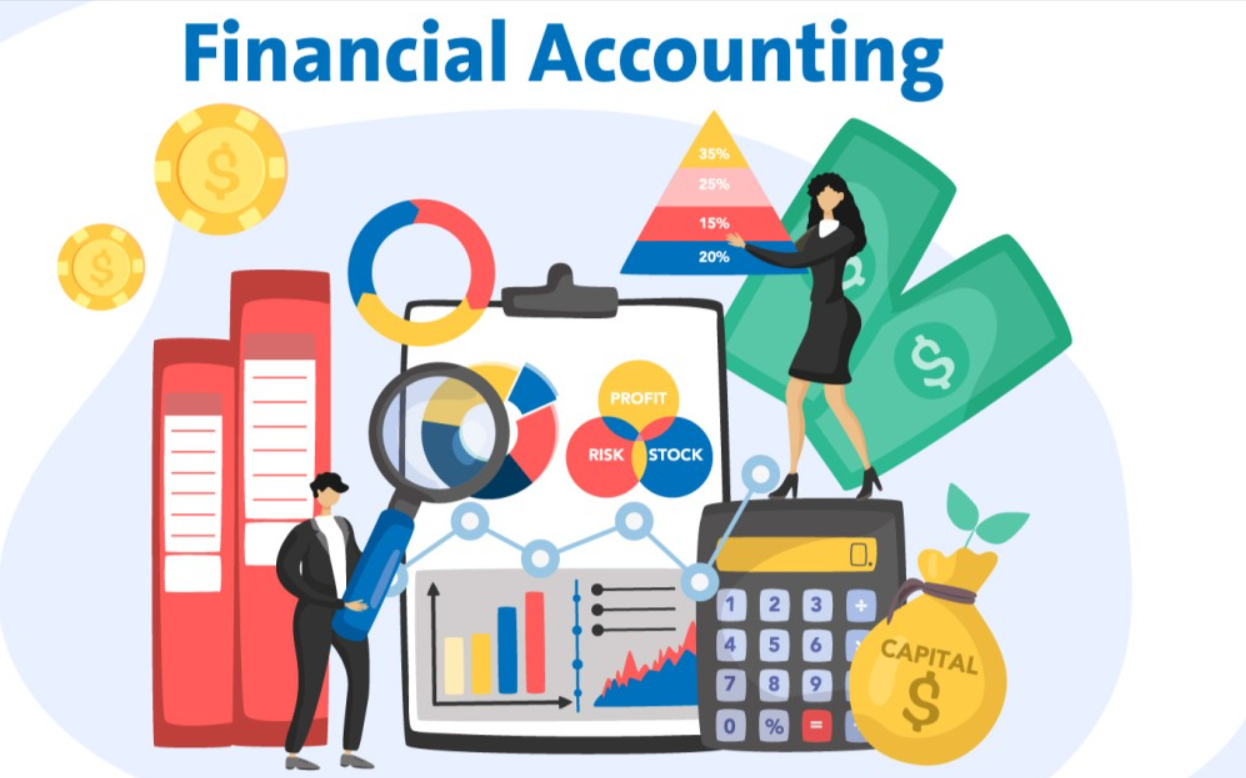If you’ve been in a business, or know how things function and how things work, then you should be aware of the functions of items like income statements as well as cash flow statements balance sheets and so on. Right? These are exactly the things that fall in Financial Accounting, where the business or organization is not only recording transactions in order to create these essential documents or reports, but analyses them, compiles them, and present them in financial statements. This whole process is what we refer to as financial accounting. However, it could pop up in your head: what function does it serve? is it useful as well as what’s the negatives of it? Correct? That’s the main reason we’re in this post today, where we will discuss all possible benefits and drawbacks of financial accounting. Okay, let’s get started today.
Advantages of Financial Accounting
1. Keeping Things Organized
The financial accounting is a way to document every business transaction in a timely and accurate manner. Comprehensive records can help any business keep a clear and organized record of financial data for the running of a company. With these documents, anyone can easily monitor his financial transactions as a business, and ensure that each transaction is properly recorded and later checked very easily. This technique allows anyone to quickly locate financial information which is crucial to audits, filling out tax forms and creating arrangements for the near future.
2. Catching and Preventing Fraud
One of the main benefits of accounting for financials is that it assists in detecting and avoid fraud. Accurate and detailed records in everything related to money do not leave anything to the possibility of interpretation or speculation, do you are aware? This method helps to prevent fraud as managers and employees know that transactions are watched with great attention.
3. Checking How Well You’re Doing
Simply put, in simple terms, financial accounting shows how profitable a company is, how effectively it is able to deal with its debts, and how healthy its overall situation is as shown by the balance sheet, income statement, and a statement of the flow of money. These are all crucial in giving management the chance to make informed decisions about the best place to invest money or where to save and what decisions to take that should be contemplated in the near future. Analyzing these financial tips provides a clear picture of areas to be improved and implement to keep their financial position solid.
4. Creating Essential Financial Documents
Financial accounting is essential to putting together crucial financial documents such as the balance sheet, income statement or cash flow statement. Why is that? They are vital in demonstrating to investors or lenders as well as agencies of the government the financial condition of a business. If the financial statements are accurate they are able to be able to make informed decisions about their business transactions.
5. Getting Loans Made Easier
This is especially true with regard to companies who seek out funds outside of their own organization, such as credit lines, loans or. In fact, banks and other institutions who issue loans rely on the information contained on financial reports to determine whether a business is suitable for loans and how financially sound it is. The accuracy and completeness of financial records also indicates an organization’s capacity to manage debt and continue to make money, thus increasing the likelihood that the company can obtain loans.
6. Evidence for Legal Matters
The accuracy of financial records is the most important evidence in legal proceedings and it is easy to understand. A properly prepared financial record aids in providing an accurate, legally admissible records of financial transactions conducted by the company when there is a dispute with the people involved, or if the requirements of regulatory compliance are not fulfilled, they can be helpful in court proceedings. This kind of evidence can safeguard the company from legal proceedings and aid in the resolution of disputes.
7. Helping Management Make Decisions
Accounting for financials contains all important data that is useful for making strategic decisions within the firm. With the help of accounts, it is possible for managers to identify patterns and evaluate performance against guidelines when making informed choices when it comes to the utilization of budgeting, resources, along with long-term plans. This is the most effective way to go isn’t it?
Disadvantages of Financial Accounting
1. Ignores Non-Financial Aspects
Accounting for financials is not restricted to quantifiable numbers but in some instances it is a sacrifice to other important aspects like competition in the market and economic conditions, technological and political shifts. In the absence of these non-financial factors can provide only a fragmentary view of what’s actually taking place within the company, leading to decisions that do not consider crucial aspects affecting the company.
2. Potential for Manipulation
Financial accounting, thought to be very strict in its nature, is manipulable to a certain degree. Accounting professionals or managers can manipulate numbers to appear superior to what it actually is. The result could lead the business to a myriad of legal issues, and this can happen very quickly.
3. Lacks Detailed Insights
Although financial accounting provides an overall picture of the financial health of the business However, most of the time the data required to make certain decisions could not be available. Therefore, a deep understanding of the efficiency of particular departments, products or services could be hidden.
4. Based on Just Estimates
A large part of accounting for financials is based on estimates, such as estimation of depreciation or the potential loss from accounts that are not paid. This can lead to a lot of inaccuracy because these estimates are based on assumptions that aren’t always accurate always. The fact is, they are just estimations, right?
5. In the Past, but with the Value of Assets
Financial accounting typically reports the value of the assets in their initial value, and does not adjust for changes in market prices over time. This may provide the impression of wrong value for assets of the company which can make financial reports inaccurate since they do not represent the true value of assets owned by the company. This can also degrade the real financial health of the business during times of a high rate of inflation or significant market changes, with assets listed as being worth greater or lesser than they actually are.
Conclusion
Overall financial accounting is among the primary and essential instruments in an organization. It lets you be aware of the financial situation of the business. Now you know the reason why it is important for the majority of businesses to use financial accounting, aren’t they?




